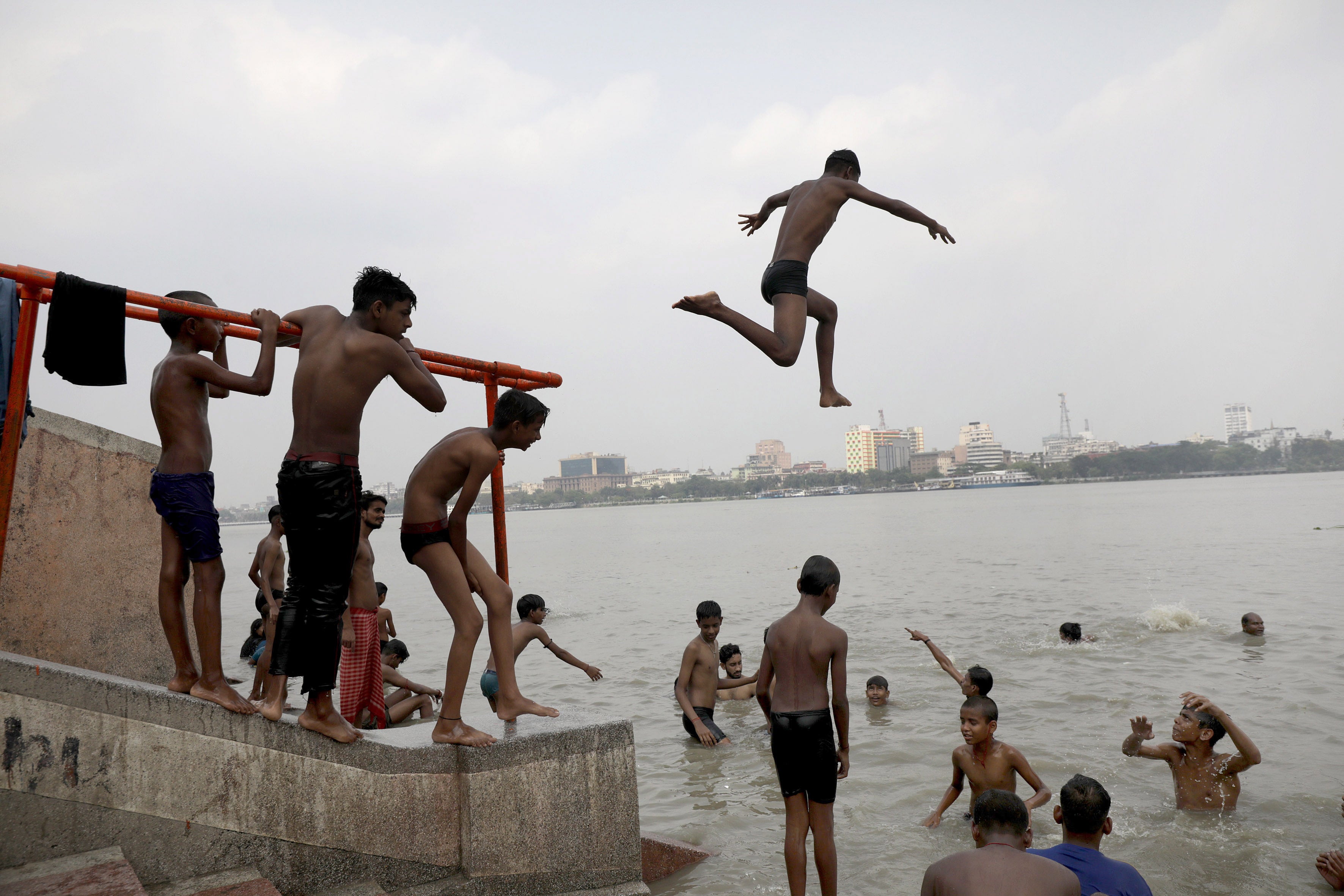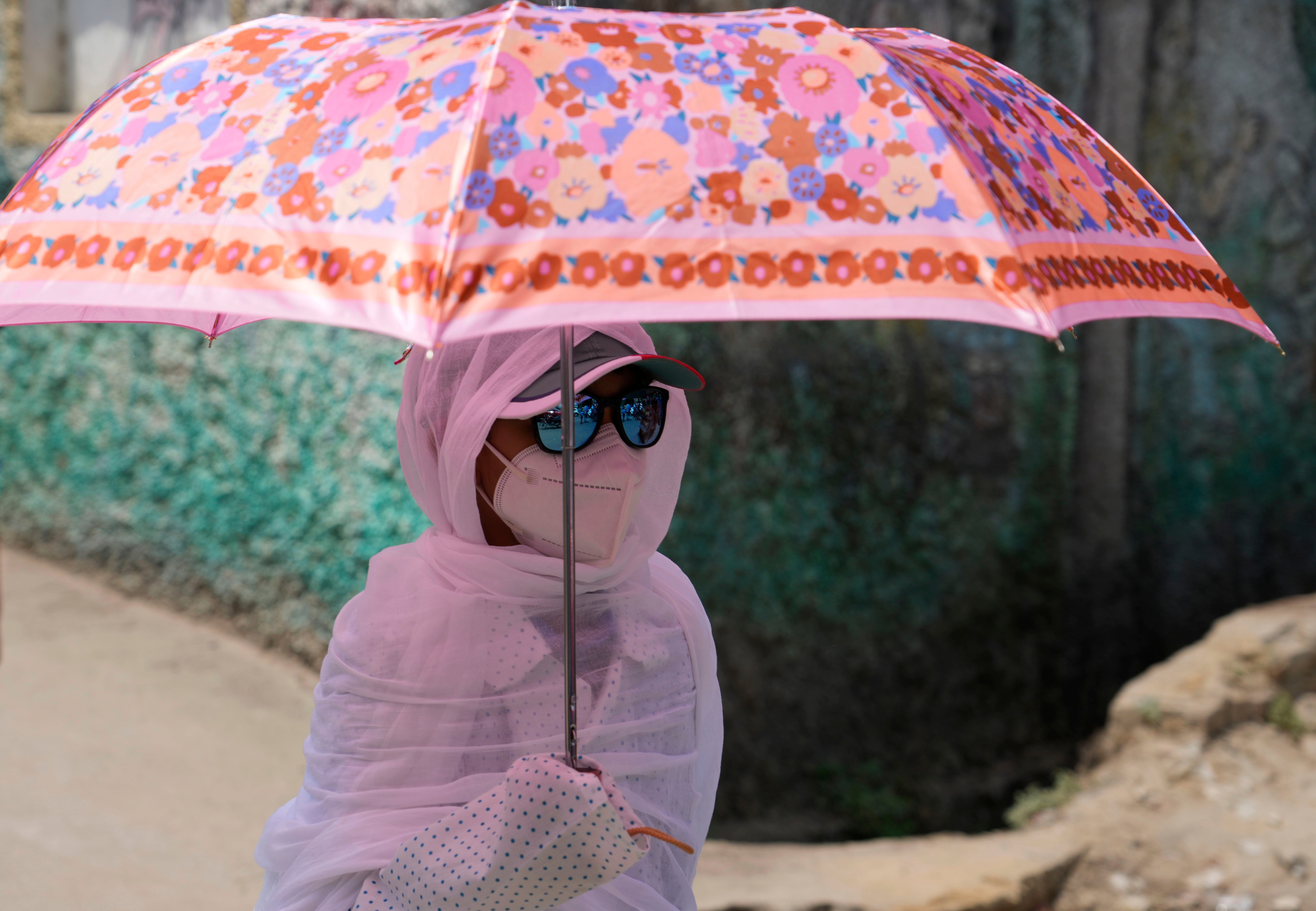India’s heatwave compared to start of climate disaster novel
‘Heatwaves are where climate change really is a game-changer,’ said one scientist

Your support helps us to tell the story
From reproductive rights to climate change to Big Tech, The Independent is on the ground when the story is developing. Whether it's investigating the financials of Elon Musk's pro-Trump PAC or producing our latest documentary, 'The A Word', which shines a light on the American women fighting for reproductive rights, we know how important it is to parse out the facts from the messaging.
At such a critical moment in US history, we need reporters on the ground. Your donation allows us to keep sending journalists to speak to both sides of the story.
The Independent is trusted by Americans across the entire political spectrum. And unlike many other quality news outlets, we choose not to lock Americans out of our reporting and analysis with paywalls. We believe quality journalism should be available to everyone, paid for by those who can afford it.
Your support makes all the difference.India and Pakistan are bracing for a potentially “deadly” heatwave that people are comparing to a hit climate fiction novel in which millions in India die leaving the nation reeling.
An unusually early heatwave has already brought extreme temperatures to a large swath of India’s northwest this month, while the country recording the hottest March on record, according to local reports. Now, further extreme heat is forecast to hit parts of the country, as well as Pakistan later this week.
“Unfortunately for Indians and Pakistanis the extreme heat is not over and it will just get worse in few days,” Climatologist Maximiliano Herrera, who keeps track of extreme weather around the world, tweeted. “An incoming potentially deadly heatwave will see the temperatures soaring up to 48-49C in Pakistan and 46-47C in India.”
India’s Meteorological Department said heatwave conditions are very likely to happen in Gujarat state and east India over the next 4 to 5 days, and would hit central and northwest India from Wednesday. One forecaster estimated that temperatures could rise to 50 degrees celsius in Jacoband, Pakistan - some 11 degrees higher than the average for April. The Indian capital, New Delhi, could reach 44 degrees celsius - around 6 degrees hotter than normal.

The main summer months — April, May and June — are always excruciatingly hot in most parts of India before monsoon rains bring cooler temperatures. But the heatwave has arrived early and grown particularly intense in the past decade, killing hundreds every year.
The forecasts of further heat this week have prompted climate and weather watchers to compare India’s heatwave to the novel ‘The Ministry for the Future’ by New York Times bestselling author Kim Stanley Robinson.
The book opens with Frank May who is experiencing a devastating heatwave and high humidity in India. The high demand for air conditioning causes power outages, meaning only those with generators can keep vaguely cool. Eventually, millions die leaving the nation traumatised and grappling with how to protect itself from further suffering.
The extremity of the heat and humidity described in the novel are not expected to be repeated in real life this week but the heat could still be extremely dangerous and readers said the parallels with the novel were hard to miss.
“The Ministry for the Future” opens with a similar event, just set in the future and thus hotter still,” tweeted renowned German oceanographer and climate scientist Professor Stefan Rahmstorf, calling it a “must read.”
“If this sounds eerily familiar, it’s because it’s basically the opening scenario in ‘The Ministry for the Future’” posted John Gibbons, an associate at climate change think tank E3G.
“Not that far short of the horrifying first chapter of Ministry of the Future,” said James Murray, the editor of Business Green, a UK website focusing on green business news and analysis.

Climate scientists have found that heatwaves are becoming more likely and more intense due to global heating.
“There is mounting evidence that heatwaves are increasing in intensity and frequency in India and across the world due to the rise in global mean surface temperature,” said Bob Ward, policy director at the Grantham Research Institute on Climate Change and the Environment at the London School of Economics and Political Science.
“These heatwave conditions are known to kill hundreds of people in India every year and will continue to become more extreme until the world cuts its annual emissions of greenhouse gases effectively to zero,” he told The Independent.
Friederike Otto, a senior lecturer in climate science at the Grantham Institute for Climate Change and the Environment at Imperial College London, told The Independent she had read ‘The Ministry of the Future’ and said she felt the author had done a good job in picking a heatwave in India as the extreme event caused by climate change.
“Heatwaves are where climate change really is a game-changer,” she said. “They are the deadliest extremes there are.”
Join our commenting forum
Join thought-provoking conversations, follow other Independent readers and see their replies
Comments